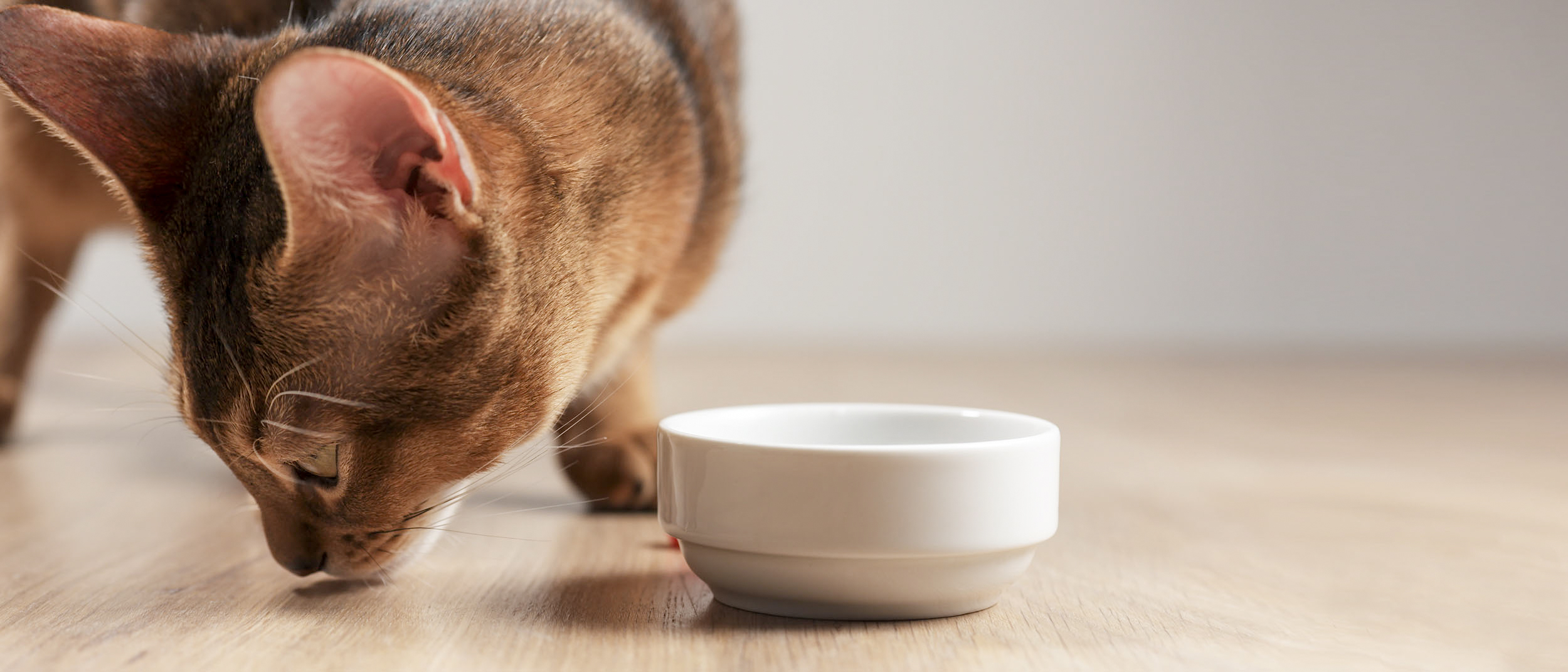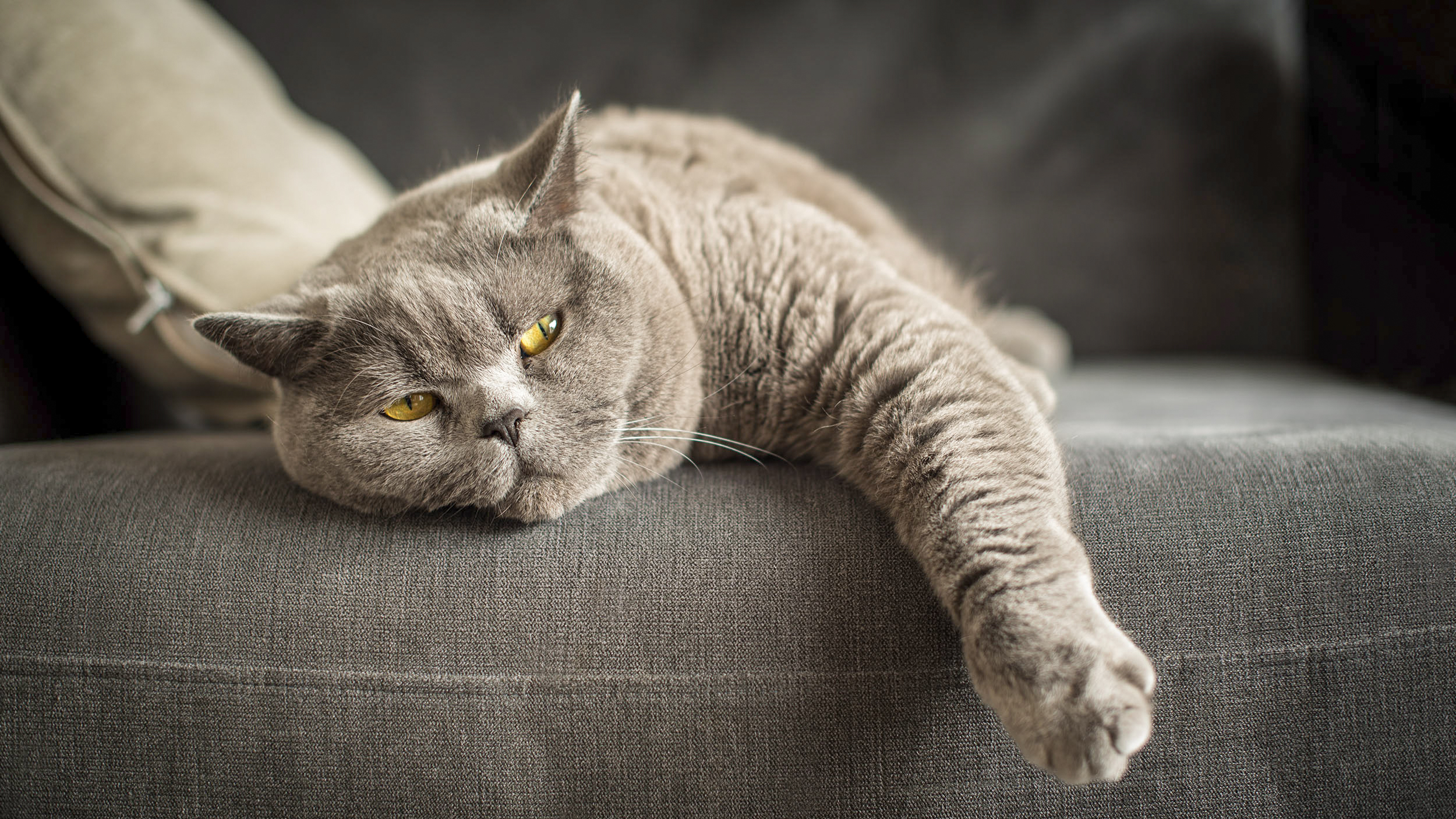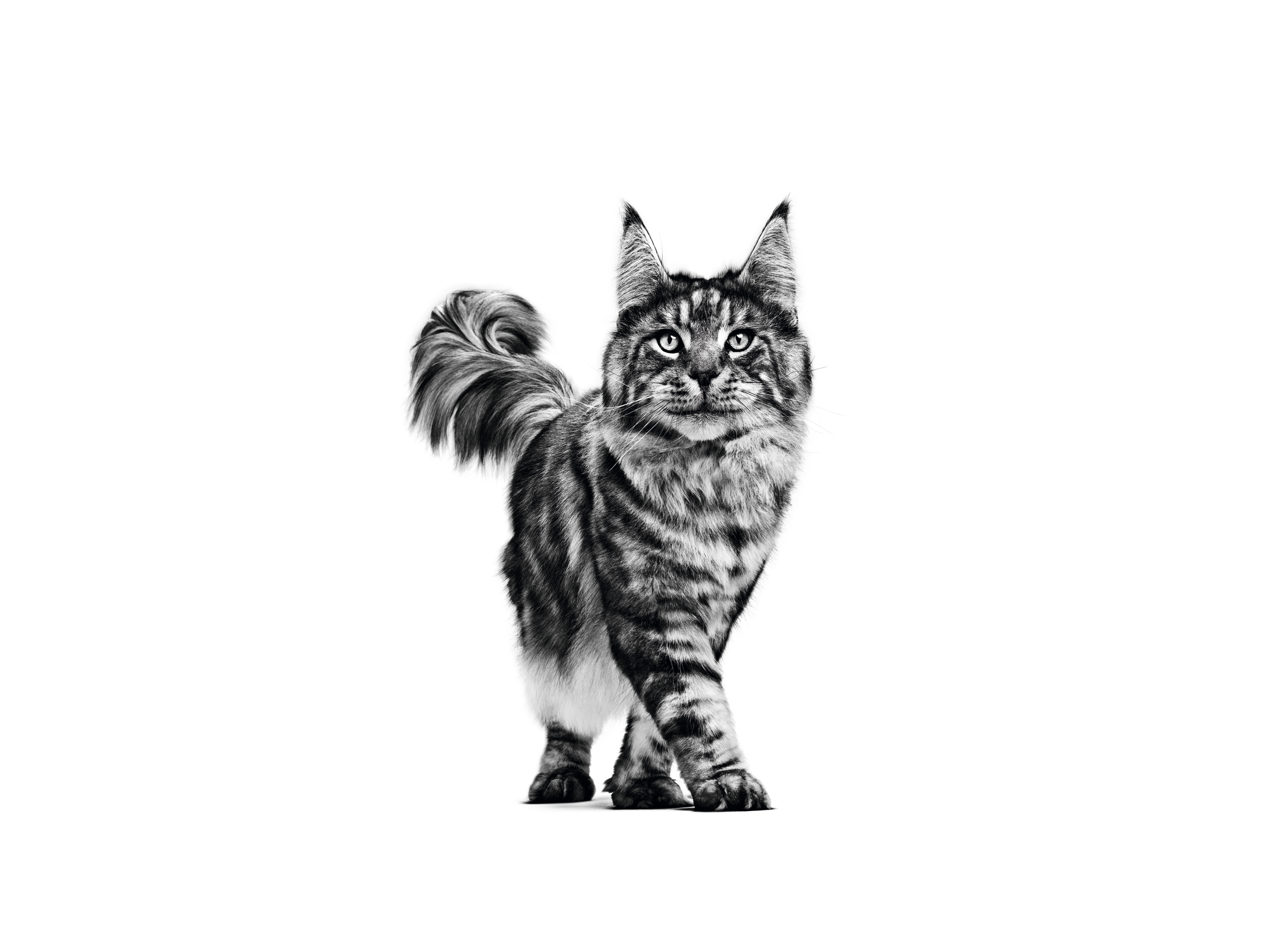Why is my cat losing weight?

Your cat’s weight will naturally change from kitten to adult, affected by factors as varied as its sex, breed, age, lifestyle and diet. But if you notice a sudden drop in your cat’s weight, it’s important to consult a vet as it can be an indicator of a more serious, underlying issue. Weight loss can occur with a normal appetite, or the appetite may be increased of decreased.
Gastrointestinal (GI) disorders in cats
If your cat is suffering from discomfort, pain or irritation in its digestive system, it can lead to a loss of appetite and eventual weight loss as the cat doesn’t want to eat. Gastrointestinal disorders can include Inflammatory bowel disease (IBD), imbalances of flora in the gut, food allergies or problems with how the small intestine is functioning. You may also notice your cat’s coat and skin are a poorer quality than normal.
Systemic Illness
Cats with systemic disease such as chronic kidney disease, hyperthyroidism, or diabetes may show signs of weight loss. Depending on what illness is causing the weight loss, your cat may not have a change in appetite. It’s important to see your veterinarian to rule out illnesses like these that may cause weight loss.
Cats and liver disease
Cats don’t often show any clinical signs of liver disease until it is well advanced; however, weight loss is an early sign along with lethargy, vomiting and refusal to eat.

Your cat and parasites
A number of different parasites can cause weight loss in your cat. Two types, Giardia and Coccidia, both cause severe diarrhoea which can lead to dehydration and weight loss. It's essential you see a vet if you believe your cat has a parasitic infestation, as they'll be able to specify what parasite it is and advise how to protect your cat (and you) against it.
Hairballs and cats
Cats spend a significant amount of time grooming themselves, which regulates their body temperature and keeps their hair and skin clean. However, if their hair isn’t properly excreted through their digestive system, it can get caught up and form hairballs. These lumps of matted hair can lead to regurgitation, constipation, esophagus blockages, a loss of appetite and eventual loss of weight.
Vitamin deficiencies in cats
Weight loss, alongside dermatological problems like flaking skin, alopecia and scratching, can be an indicator of a B vitamin deficiency, which occurs with gastrointestinal disease or when an unbalanced diet is fed. This vitamin is water-soluble and cannot be stored in the body, therefore your cat’s diet must include the vitamin B complex to help maintain a healthy coat and skin.
If your cat is eating a diet that is not complete and balanced, they may be at risk for vitamin and other nutrient deficiencies. If your cat is losing weight and you’re worried it might be due to a vitamin deficiency, please see your veterinarian.
If you have any concerns about your cat’s recent weight loss, make sure to visit your vet; they’ll conduct a full examination and be able to address your concerns directly. The best way to ensure your cat remains at a healthy weight is to visit your veterinarian regularly and to measure your cat’s food, so you can take note of any changes in food intake.
Related Articles

Find a vet
If you have any concerns about your cat’s health, consult a vet for professional advice.
Like & share this page